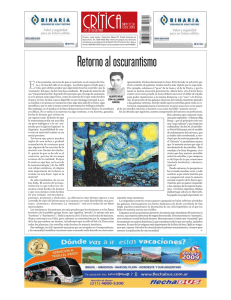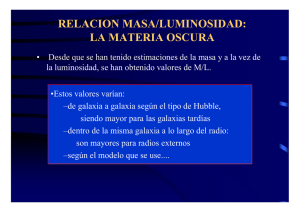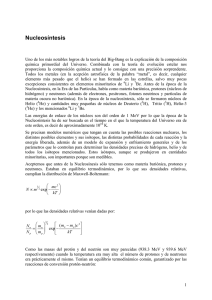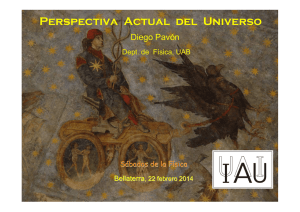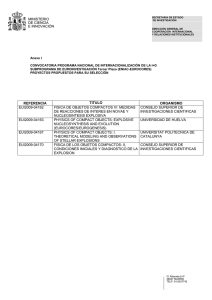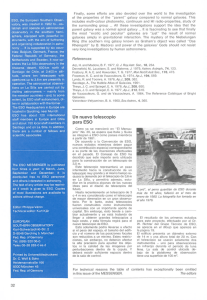the chemical history of the elements i
Anuncio
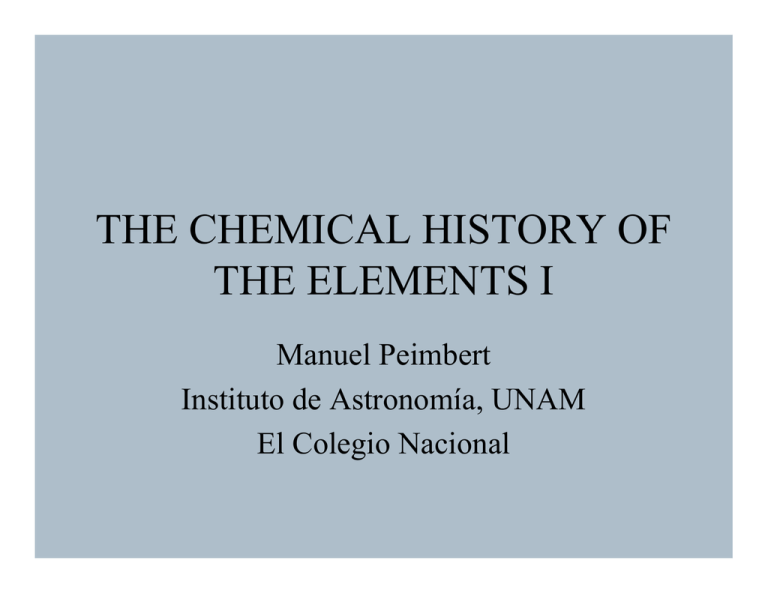
THE CHEMICAL HISTORY OF THE ELEMENTS I Manuel Peimbert Instituto de Astronomía, UNAM El Colegio Nacional OVERVIEW • I Introduction • II. Observational constraints based on H II Regions and Planetary Nebulae • III.Big-Bang Nucleosynthesis and the Primordial Helium Abundance • IV.Pagel´s method to derive the O/H ratio in galaxies • V.Chemical Evolution of the Galaxy: C,O, and N Gradients Bibliography • Nucleosynthesis and Chemical Evolution of Galaxies. B.E.J. Pagel, 1997 • Astrophysics of Gaseous Nebulae and Active Galactic Nuclei. D. E. Osterbrock, 1989 • Astrophysics of Gaseous Nebulae and Active Galactic Nuclei III. D. E. Osterbrock and G. Ferland, 2005 • http://nedwww.ipac.caltech.edu/level5/ Yields. Estrellas aisladas. MS pi 10 < m < 20 rotación mas importante que vientos m > 30 viento mas importante que rotación Hirschi, Meynet & Maeder (2005) Yields. Estrellas aisladas. MS Importancia de la IMF Yields. Estrellas aisladas. Pop III Pop III (Z ~ 0) • Woosley & Weaver (1995) • Abia et al. (2001) • Meynet & Maeder (2002) • Heger & Woosley (2002) • Marigo et al. (2003) • Umeda & Nomoto (2003) • Chieffi & Limongi (2004) M bariónica y M no bariónica Evolución química considera sólo M bariónica •Acreción debido a Potencial Gravitacional •Viento debido a que la E térmica del ISM ≥ E gravitacional Materia bariónica Materia no bariónica
